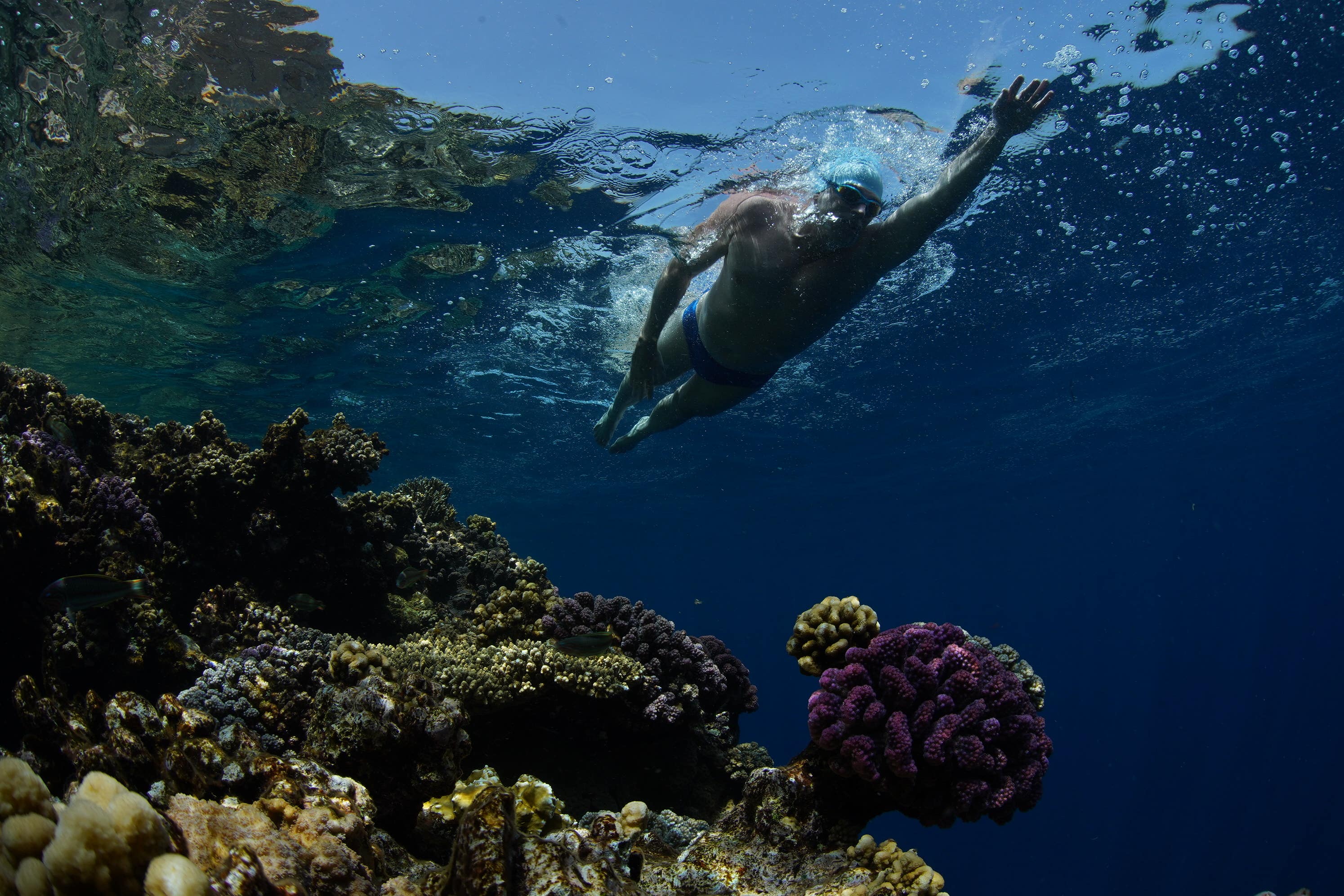Endurance swimmer Lewis Pugh in Red Sea swim to highlight climate coral crisis
The British UN patron of the oceans will swim 100 miles across the Red Sea to call for action to cut emissions and protect sea life ahead of Cop27.

Your support helps us to tell the story
From reproductive rights to climate change to Big Tech, The Independent is on the ground when the story is developing. Whether it's investigating the financials of Elon Musk's pro-Trump PAC or producing our latest documentary, 'The A Word', which shines a light on the American women fighting for reproductive rights, we know how important it is to parse out the facts from the messaging.
At such a critical moment in US history, we need reporters on the ground. Your donation allows us to keep sending journalists to speak to both sides of the story.
The Independent is trusted by Americans across the entire political spectrum. And unlike many other quality news outlets, we choose not to lock Americans out of our reporting and analysis with paywalls. We believe quality journalism should be available to everyone, paid for by those who can afford it.
Your support makes all the difference.British endurance swimmer Lewis Pugh will swim 100 miles across the Red Sea to highlight the impact of climate change on fragile coral reefs.
The UN patron of the oceans, who has previously swum in the Arctic, Antarctica and on Everest to highlight environmental damage, will complete the challenge ahead of UN Cop27 climate talks in Sharm El-Sheikh, Egypt.
Mr Pugh hopes his swim – which he says will be the first across the Red Sea – will highlight the speed of the climate crisis and its impact on precious coral ecosystems and the wildlife they support.
He is calling on leaders and negotiators attending Cop27 to drastically cut greenhouse gas emissions to tackle climate change, and for 30% of the world’s oceans to be protected by 2030 to help them be more resilient to rising temperatures.
The UN’s scientific review body, the Intergovernmental Panel on Climate Change (IPCC) said 70-90% of coral reefs would be lost with global warming of 1.5C but would all but vanish in a world with 2C rises.
The world is on track for more than 2C of temperature rises.
Mr Pugh’s 160km swim from Saudi Arabia to Hurghada, Egypt, this month, will take him over the wildlife-rich coral reefs of the Red Sea, which research has suggested are among the most resistant to climate change.
His 10km-a-day swims will also take him across one of the world’s busiest shipping lanes, leading to the Suez Canal.
He said: “If we lose our coral reefs, we will not just drive many thousands of species into extinction, we will lose an entire ecosystem on which we depend.
“This would be unprecedented in human history.
“Coral reefs are the nurseries of our oceans and home to some of the most incredible life on earth.
“I refuse to accept that we could lose them in my lifetime.”
Mr Pugh has become known for his “Speedo diplomacy”, swimming in some of the world’s coldest and most dangerous waters in just his swimwear in campaigns to secure protection for oceans and their wildlife.
“I’ve been swimming in the world’s oceans for 35 years and during that time I’ve seen them change dramatically.
“The biggest changes I’ve seen are in the polar regions and in coral reefs. Both are affected by rising temperatures; the poles are melting and the coral is dying,” he said.
He said ice and coral are the “ground zeros of the climate crisis” and provide indisputable evidence of global warming.
“Coral reefs are the barometers that illustrate clearly what happens when we heat our planet. Every fraction of a degree now matters,” he said.
If temperatures continue to rise as predicted, the coral of the Red Sea could be among the last on Earth, so it is imperative to protect it from other threats, Mr Pugh said.
Alongside rising carbon dioxide levels, which lead to increased sea temperatures, which bleach and kill coral, and to acidification of the oceans, which harms wildlife, coral reefs are also under pressure from overfishing, pollution and disturbance.
Mr Pugh’s two-week swim will take him past Sharm El-Sheikh, where the UN climate conference is due to take place in November.
He will attend it to urge countries to take immediate action to cut the emissions driving climate change and create protected ocean areas to reduce other threats.